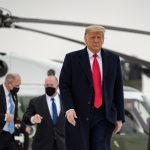A recent letter from five GOP House members to President Joe Biden shines a glaring spotlight on the ongoing saga in Iraq’s oil sector. It appears that, while Americans are paying hefty prices at the pump, some politicians are busy deepening ties with a country that could very well be using oil profits to fund terrorism. The crux of the issue? An Iraqi oil official has been invited to promote investments in Iraq’s oil and gas sector—an event many see as a potential front for facilitating Iran’s nefarious activities in the region.
The lawmakers wasted no time in raising the alarm about Iraqi Oil Minister Hayyan Abdul-Ghani, suggesting his actions could align with efforts to help Iran circumvent U.S. sanctions. This is not just an abstract concern; it’s a palpable threat that American consumers could unknowingly be financing terrorist organizations. With a tight squeeze on domestic oil production due to environmental regulations, it seems the U.S. is increasingly dependent on foreign oil—a scenario that could leave Americans funding the very groups that threaten their safety.
‼️‼️ Iraqi Banks Used U.S.-Created System to Funnel Funds to Iran: as much as 80% of the more than $250 million in dollar wire transfers flowing through them on some days were untraceable & some portion went secretly to the #IRGC . https://t.co/rzmoYjZNuO
— Hiba Nasr (@HibaNasr) September 9, 2024
Biden has been criticized for his approach to Iran, which is viewed as dangerously lenient. Rep. Steve Scalise has pointed out that the current administration is mistakenly prioritizing flattering Iran while punishing American energy producers. This strategic misstep is viewed as a fundamental flaw in Biden’s foreign policy, and the GOP is more than ready to highlight the absurdity of importing oil from regions replete with terrorism when American energy independence could be within reach.
The impending appearance of Abdul-Ghani at a Houston event, organized by the State Department’s Bureau of Energy Resources, has raised eyebrows across the aisle. Many are questioning the wisdom of inviting someone whose government might be complicit in oil schemes that bankroll groups like Hezbollah and Hamas. Reports indicate that the Iraqi government, under Prime Minister Mohammed Shia al-Sudani, is not only diverting fuel for illicit export but also seeking to position itself as a player in global energy markets—all while potentially thwarting U.S. investments in the process.
This alarming situation is compounded by the facts: Iraq’s oil production is stagnating due to blocked pipelines intended for U.S. interests. Rather than strengthening ties with the U.S., Iraqi officials seem more focused on fostering their partnerships with Iranian militia groups. The irony is thick; while American lawmakers call out this malpractice, the Iraqi government continues to play a dangerous game, profiting off oil while skirting American sanctions—an audacious act that could have far-reaching consequences for national security.
The letter from the representatives did not simply voice concerns. It demanded action from the Biden administration, urging a thorough investigation into whether Iraqi officials have violated sanctions or engaged in malign activities facilitating terrorism. The message is clear: while American families grapple with everyday challenges and rising energy costs, their government needs to take a tougher stance against abuses that allow terrorist financing to seep through the cracks, all disguised under the veil of diplomacy and investment opportunities.




